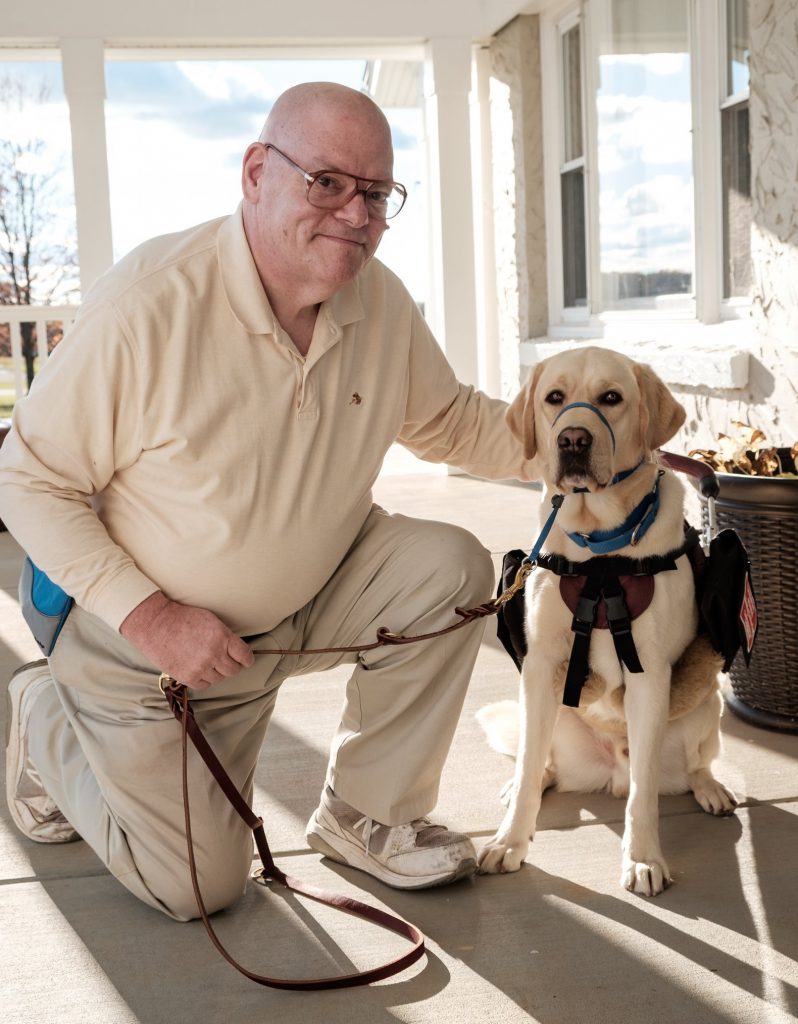 Edward’s Story
Edward’s Story
I am an individual who has been fighting a battle with epilepsy, diabetes and balance issues each and every day, for over thirty years. This battle with my body has been truly challenging and frustrating, yet my life changed for the better thanks to the partnership with my assistance dog “Zern”, a cream Labrador Retriever. “Zern” truly restored a level of normalcy in my life. Zern was raised and trained by an organization called Canine Partners for Life.
How an assistance dog can help
“Zern” has been trained to: warn me in advance of each oncoming seizures, provide me balance and support, thus preventing me from falling and injuring myself, open doors for me, pick up items on command, and much more. He is trained to respond to dozens of my verbal commands. He also provides me a necessary distraction that I need when I have to deal with my severe chronic pain that I suffer from, due to my epilepsy. He knows when I am feeling the pain and he works to distract me during these terrible times.
Types of assistance dogs
There are three (3) basic types of Assistance Dogs (under ADI Standards):
· Guide Dogs – for the blind and the visually impaired
· Hearing Dogs – for the deaf and hard of hearing
· Service Dogs – for people with disabilities other than those related to vision or hearing
But, there are many other common examples, such as mobility assistance dogs, medical alert dogs, seizure alert/response dogs, psychiatric service dogs, and autism dogs.
Assistance dogs are either bred in selective breeding programs or rescued from animal shelters and raised by volunteers prior to their formal training. Most service dogs are Golden Retrievers, Labrador Retrievers, German Shepherds, collies, standard poodles, etc. Service dogs can often be identified by either a jacket, backpack or harness.
Resources for assistance dogs
For more information about “assistance dogs”, please visit:
Assistance Dogs International (ADI)
ADI is a coalition of not for profit organizations that train and place assistance dogs.
International Association of Assistance Dog Partners (IAADP)
IAADP is a non-profit, cross-disability organization representing people partnered with guide, hearing and service dogs.
Working Like Dogs (WLD)
WLD is a resource for people with working and service dogs, or who would just like to learn more about them.
Recognition for service
Each year my assistance dog “Zern” and I look forward to participating in International Assistance Dog Week (IADW) because we are proud of the assistance dog community around the world. This is an opportunity to recognize all these devoted, hardworking dogs helping individuals (like myself), mitigate their disability related limitations.









Leave a Reply